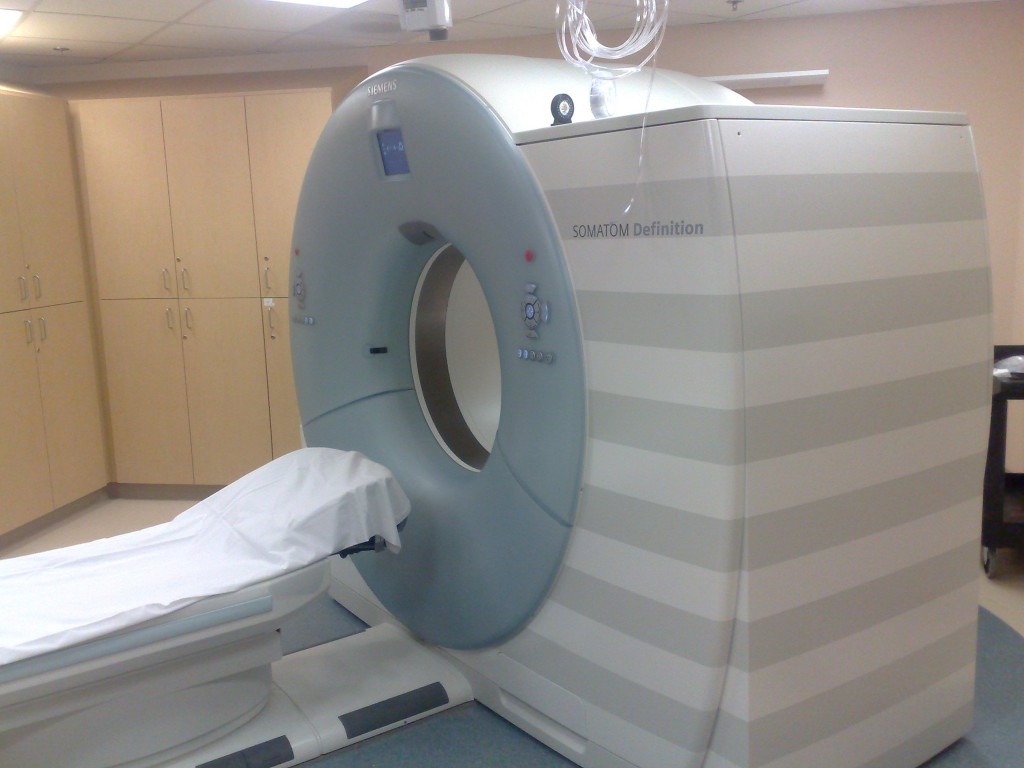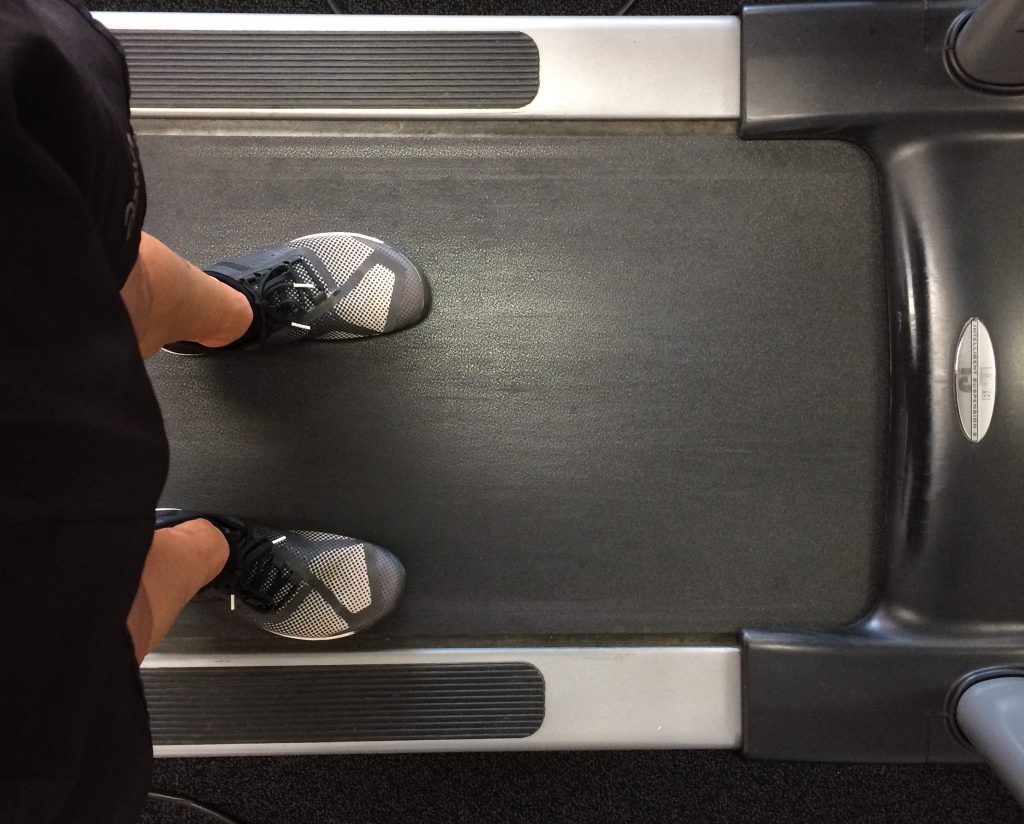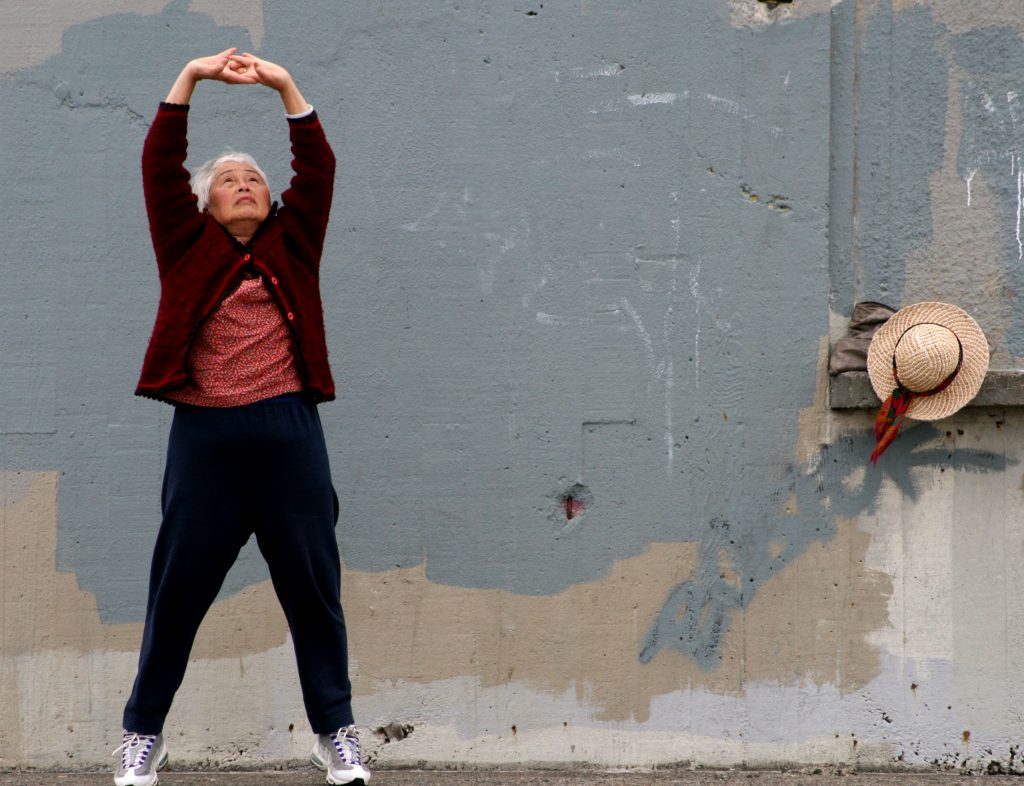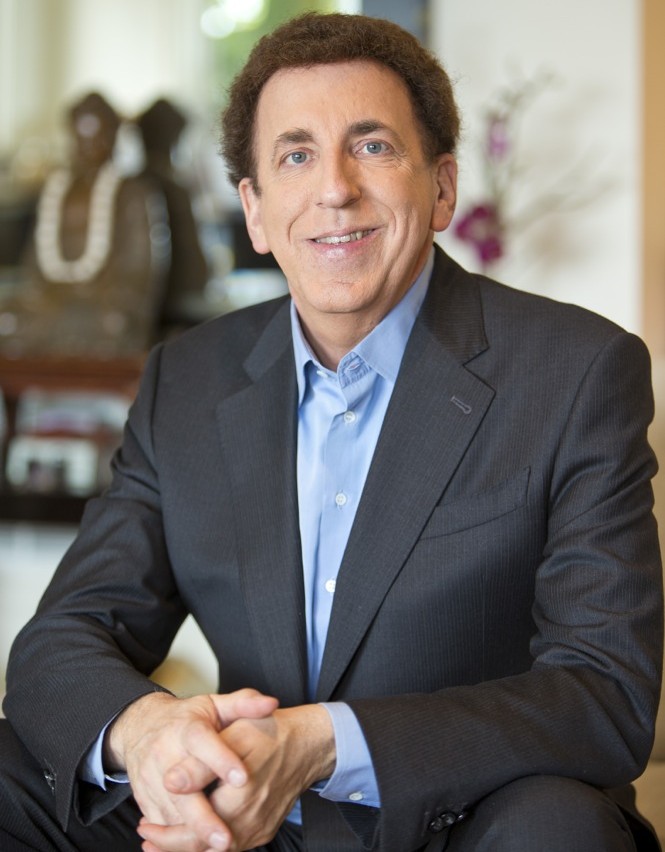
Is There A Non-Invasive Test That Can Determine If Any Plaque Reversal Has Occurred After A Year On The Ornish Lifestyle Medicine Program?

by Dean Ornish, MD.
Photo Credit: Jon Callas, via Flickr Creative Commons
Yes — the best non-invasive test for arterial plaque is a 320-slice or 256-slice CT scanner. In some ways, this is even better than a traditional invasive angiogram, as it provides a three-dimensional view of the plaque throughout the arterial wall, not just the part that impinges into the interior of the artery.
What Makes a CT Scan Better?
It’s the difference between seeing the whole iceberg vs. just the tip of the iceberg. There is some radiation exposure, but the newer scanners have much less, and if you have heart disease, the benefits may outweigh the risks.
Contributed by
Better Health Begins With You...
Have something to contribute?
-
Jay Myerson November 9, 2014
What can we do to get your program provided at INOVA Hospitals in Northern Virginia?
-
Rita Rubin, MS, RD, CDE November 9, 2014
I host a reversing heart disease support group at the Wellness Center of the hospital where I work. Many people in the group have afib and have questions regarding lifestyle changes that can reduce or reverse this condition. Many have already adopted the changes you recommend to reverse heart disease but still have afib. Thanks for your help!
-
Ritesh patil November 11, 2014
Hai sir i had gone through all u r books,i am applying in my life but i want to share with everybody about ur reaserch but u dont have branch in INDIA.so please start one branch here because this country is no 1 in heart disease and iam ready to work with u for such a noble cause
-
Sojourna Lee December 3, 2014
My mountain biker lover will be 64 this month. He had a silent MI with 5 stents to his RCA and LAD August 2012. It started by the pain in his medial thigh just above the knee and that needed 2 stents, too. Because of the latter his vascular doc said to take 75mg of Clopidogrel and a 81 mg aspirin every day for the rest of his life. He is on a mostly vegan diet now (since May 2013,) after years of meat and whole milk diet (always loved veggies). He has been riding bikes regularly and long since he was 16 years old. After the flight and Napa Valley hospitalization he ended up on Medi-Cal. We need a progressive cardiologist and would like to see how his reversal progress is going. Any chance Medical would pay for that procedure? Know any progressive docs like yourself he could see in Northern California? Thanks for your wonderful work in this world!
-
Rachel Lehmann-Haupt December 8, 2014
IF YOU BELIEVE YOU HAVE A MEDICAL EMERGENCY, YOU SHOULD IMMEDIATELY CALL 911 OR YOUR PHYSICIAN. If you believe you have any other health problem, or if you have any questions regarding your health or a medical condition, you should promptly consult your physician or other healthcare provider. This site/call center does not provide medical advice, professional diagnosis, or opinion to you or to any other individual. Although Dr. Ornish is not able to answer personal medical questions, please refer to these frequently asked questions.
-
John Dimry December 4, 2014
Is it possible to get your program into one of these hospitals? Loma Linda Hospita in Loma Linda Ca.,Saint Bernadine Hospital in San Bernardino Ca.,Redland Community Hospital in Redlands Ca.,or Eishenhower Medical Center in Rancho Mirage, Ca.. I live in Banning, Ca. and the drive to UCLA is to far for me to drive daily.
-
Rachel Lehmann-Haupt December 8, 2014
IF YOU BELIEVE YOU HAVE A MEDICAL EMERGENCY, YOU SHOULD IMMEDIATELY CALL 911 OR YOUR PHYSICIAN. If you believe you have any other health problem, or if you have any questions regarding your health or a medical condition, you should promptly consult your physician or other healthcare provider. This site/call center does not provide medical advice, professional diagnosis, or opinion to you or to any other individual. Although Dr. Ornish is not able to answer personal medical questions, please refer to these frequently asked questions.
-
VIJAY GAUR December 6, 2014
WHAT DOES THE CALCIUM SCORE OF 2900 IN C.T. ANGIOGRAPHY STANDS FOR? SEVEN YEARS BACK IT WAS 727.WHAT SHOULD I DO,I AM PURE VEGETARIAN ,NON-SMOKER- DO NOT TAKE ALCOHAL AND FOLLOWING ZERO OIL DIET SINCE 2007 AFTER M.I. IN MARCH 2007.BLOCKAGES IN LCX AND RCA HAVE REDUCED BUT IN LAD IT IS 95TO 99%
-
Rachel Lehmann-Haupt December 8, 2014
IF YOU BELIEVE YOU HAVE A MEDICAL EMERGENCY, YOU SHOULD IMMEDIATELY CALL 911 OR YOUR PHYSICIAN. If you believe you have any other health problem, or if you have any questions regarding your health or a medical condition, you should promptly consult your physician or other healthcare provider. This site does not provide medical advice, professional diagnosis, or opinion to you or to any other individual. Although Dr. Ornish is not able to answer personal medical questions, please refer to these frequently asked questions.
-
Deborah Waddell December 11, 2014
Have you ever had a patient that does follow the the oil free, vegan program with exercise but still can’t get her total cholesterol below 220? HDL and LDL are not great either. My cardiologist says its in my genes but I so believe in eating an oil free, whole foods plant based diet. I even took Dr. Campbell’s course on Plant based nutrition from eCornell. I just don’t understand how it can help so many others but not me. I won’t give up, I eat this way and love it. I feel wonderful, no pain, had a heart event in 13 years ago and I have one stent.
-
Rachel Lehmann-Haupt January 12, 2015
In his Spectrum book, Dr. Ornish describes a studies he did proving that lifestyle medicine can change our genes:
Your Genes Are Not Your Fate
Your genes do play a role in a number of conditions. However, in most cases, your genes are only a predisposition towards different conditions. If your genes make you more likely to have diabetes, or heart disease, or to gain weight, it just means you may need to go farther in a healthy direction on the Spectrum than someone else in order to prevent or to reverse these conditions.
We know, for example that Pima Indians develop type 2 diabetes at eight times the rate of white Americans. However, Pima Indians who change their diet and lifestyle can often prevent or even reverse it, so their genetic predisposition can be overcome by making sufficient changes in their diet and lifestyle.
There are at least 50 genes involved in gaining too much weight. Some of these genes influence appetite, others affect your resting metabolic rate (how many calories you burn just sitting still), and other genes play a role in how you deposit fat in your tissues.
For example, some people hold onto fat very efficiently. In earlier times, when food was scarce, this gave them a survival advantage—those who stored calories most efficiently tended to weigh more and live longer during times of famine. Those who did this best were most likely to survive and to pass their genes along to the next generation. Also, when food was scarce, their metabolism would slow down, causing them to burn calories more slowly and to be more likely to survive when food was not very available.
However, in modern times, those same genes may threaten your survival as they predispose you to gain too much weight. Also, this helps to explain why losing weight by just eating fewer calories can be so frustrating. If you reduce your caloric intake by one-third, at first you lose weight. But your body may then think you’re starving, so these genes kick in and cause your metabolism to slow down by one-third so you burn those calories more slowly and may stop losing weight even if you keep eating fewer calories. This is sometimes called the “thrifty genotype hypothesis.”
Can I Change My Genes By Changing My Diet & Lifestyle?
Dr. Carroll and I, along with our colleagues at the Preventive Medicine Research Institute and the School of Medicine, University of California, San Francisco, collaborated on a study to find out if our program of comprehensive changes in diet and lifestyle could affect how genes are expressed in men with prostate cancer.
In this study, we enrolled men with biopsy-proven prostate cancer and asked them to follow the program described in this book from the healthiest end of the Spectrum. After just three months, we repeated their prostate biopsy.
Surprisingly, we found that over 500 genes were beneficially affected—in simple terms, these changes in diet and lifestyle “turned on” (upregulated) disease-preventing genes and “turned off” (downregulated) genes that promote heart disease, breast cancer, prostate cancer, inflammation, oxidative stress, and other illnesses. For example, the Selectin E gene (which promotes inflammation and is elevated in breast cancer) was downregulated. This study was published in the Proceedings of the National Academy of Sciences.
These extraordinary results captured my imagination. We are still trying to understand the full significance of these findings, but it’s already clear that while you can’t change your genes, you may be able to alter, at least to some degree, how your genes are expressed simply by changing your diet and lifestyle.
I find this to be a profoundly hopeful message and an antidote to genetic nihilism. It’s not all in your genes.
In a related study, described more fully in Chapter 6, we found that these comprehensive lifestyle changes were able to significantly increase the DNA-repairing enzyme telomerase, and thus telomere length, in only three months. As your telomeres get shorter, your life gets longer. More on this later. -
Bernice Darland Osborne December 29, 2014
My Calcium Score is 320 up 200 points from my last scan four years ago. I have gone on your undo program and was wondering if I could do another scan in three months. Is that enough time to see if my diet is working? My last blood work results on 11/10/14 was Cholesterol: 152; Triglyceride: 83; HDL 55; LDL: 80
-
Rachel Lehmann-Haupt January 5, 2015
We’re so happy about your interest. Please click this link to find out everything you need to know about the program.
-
Cathy Sterchi January 4, 2015
I have no trouble eating the things you suggest…but since I am hypo -thyroid, I was told I should not eat more than 3 oz of soy or to leave it out of my diet completely. Where do you stand on this issue? (I take Armour Thyroid, 90 mg once a day)
-
Millie Osborn February 8, 2015
My recent nuclear stress test was completely negative. Can I assume that means I have a reversal of placque? I have been on the Ornish diet for about 5 years now.
-
Rachel Lehmann-Haupt February 23, 2015
IF YOU BELIEVE YOU HAVE A MEDICAL EMERGENCY, YOU SHOULD IMMEDIATELY CALL 911 OR YOUR PHYSICIAN. If you believe you have any other health problem, or if you have any questions regarding your health or a medical condition, you should promptly consult your physician or other healthcare provider. This site/call center does not provide medical advice, professional diagnosis, or opinion to you or to any other individual. Although Dr. Ornish is not able to answer personal medical questions, please refer to these frequently asked questions.
-
Lawrence J. Feldman March 15, 2015
The AMA has said that the intake of cholesterol does not increase blood cholesterol. There is evidence that eating salmon can reduce a man’s chances of prostate cancer. Studies show a Mediterranean diet produces the lowest all cause mortality. Media interpretation of studies are usually misleading. Studies don’t usually compare the studied group to a healthy vegan diet. Medical groups like the AMA often have members with competing interests and so one can’t really understand the true benefits of any particular lifestyle vs. another. Are there any studies that show the advantages of a vegan diet over other diets? Any studies showing that olive oil is not healthy and in what form (i.e. is it healthy if not heated?). Are there any studies that show the lack of health benefits associated with whole wheat flour? Are there any studies that look at what is healthy for people without heart disease vs. what might be health for those who already have it? Is there a way to narrow the search for the truth?
Thanks,
Larry
-
Vanesser Brooks July 1, 2016
Can i reduce the plaque causing a subclavian steal and reverse the steal therefore allowing the blood to flow normally?
-
Ben Brown, MD February 21, 2017
Hi Vanessa, the changes in blood vessels while doing the Ornish Lifestyle Medicine Program are in all your vessels. So the possibility of reducing the plaque in the vessel causing your subclavian steal is likely on our program. To your health, Ben
-
Nan Woodbury June 7, 2017
Is the 256 or 320 CT scan you are talking about the same as the “Coronary calcium” test or screening? Or are those 2 different tests?
-
Ben Brown, MD September 19, 2017
Hi Nan,
Thanks for your question about the CT scan. The heart scan does use a CT scanner, but is different than this test. This is what is called a CTA or CT Angiogram. The Heart scan is a useful screening test for calcified plaques, but the CTA shows the entire inside of the blood vessel which would include discovering areas affected by both calcified and non-calcified plaques. This would be useful in measuring pre and post testing if someone was in a research protocol, but not likely needed for the average person wanting a screening test. For that the heart scan measuring calcium score is usually used.
Here is an article with more detail if you would like
https://www.ncbi.nlm.nih.gov/pmc/articles/PMC2893879/
To your health, Ben
Up Next for You


How To Respond to Early Symptoms of Heart Disease. Rule #1: Don’t Ignore Them.






